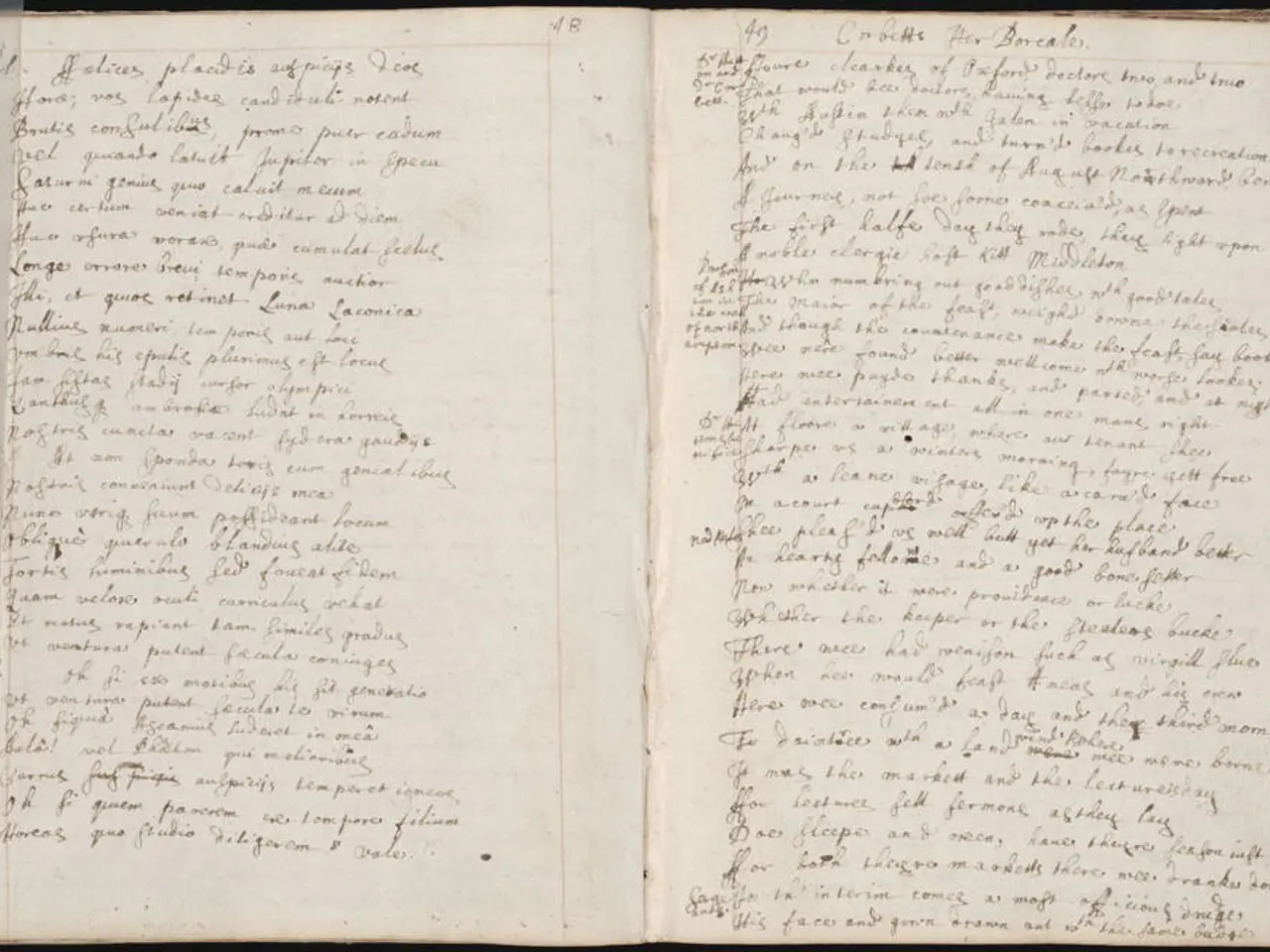Navigating Texts of Warfare: Not Solely Content, But Reading Approach Matters
In the dynamic world of national security and foreign policy, the importance of critical thinking, strategic thinking, and effective writing cannot be overstated. For professionals seeking to excel in these areas, a wealth of recommended books offers valuable insights.
**Critical and Strategic Thinking**
One of the standout publications is "Red Teaming: A Tool to Conduct Risk Assessment, Develop Critical Thinking, and Challenge SOF Strategic Planning Assumptions," a practical guide from the Joint Special Operations University. This resource provides essential tools for risk assessment and challenging strategic assumptions in special operations contexts.
Another essential read is "Purpose and Power: U.S. Grand Strategy from the Revolutionary Era to the Present" by Donald Stoker. This book offers a comprehensive historical roadmap on U.S. grand strategy, providing a solid foundation for understanding strategic thinking within national security and international relations frameworks.
"Tailored Assurance: Balancing Deterrence and Disarmament in Responding to NATO-Russia Tensions" by Heather Williams focuses on strategic policy considerations in arms control relevant to NATO and Russia tensions. This book is a must-read for strategic planners in foreign policy.
Lastly, "Security, Economics and Nuclear Non-Proliferation Morality: Keeping or Surrendering the Bomb" by Tuang Nah and Liang offers an interdisciplinary strategic framework critical for national security analysts.
**Effective Writing and Communication**
While specific books solely on effective writing for national security professionals are not listed, effective writing often involves mastering clarity, precision, and persuasive argumentation tailored to policymakers and military audiences. Resources from professional military education, such as the publications from the Joint Special Operations University, often include guidance on writing techniques alongside strategic topics.
Additional recommended texts outside the search results but widely acknowledged in the field include "The Elements of Style" by Strunk and White—a foundational guide to clear and concise writing—and "Writing for Strategic Impact," often featured in military education syllabi to improve policy and operational writing skills.
**Additional Resources**
The Council on Foreign Relations' publication, "Foreign Policy Begins at Home" by Richard N. Haass, emphasizes the importance of domestic factors in national security and provides context for strategic thinking that balances domestic and international priorities.
In conclusion, these texts provide a solid foundation for professionals seeking to enhance their critical, strategic, and writing skills specifically contextualized to national security and foreign policy challenges. For effective writing skills specifically tailored to the field, it is also valuable to consult military professional education materials and strategic communication guides.
- The book "Red Teaming: A Tool to Conduct Risk Assessment, Develop Critical Thinking, and Challenge SOF Strategic Planning Assumptions" is a practical guide from the Joint Special Operations University, offering essential tools for risk assessment and challenging strategic assumptions in special operations contexts.
- Donald Stoker's book "Purpose and Power: U.S. Grand Strategy from the Revolutionary Era to the Present" provides a comprehensive historical roadmap on U.S. grand strategy, offering valuable insights for understanding strategic thinking within national security and international relations frameworks.
- "Tailored Assurance: Balancing Deterrence and Disarmament in Responding to NATO-Russia Tensions" by Heather Williams is a must-read for strategic planners in foreign policy, focusing on strategic policy considerations in arms control relevant to NATO and Russia tensions.
- "Security, Economics and Nuclear Non-Proliferation Morality: Keeping or Surrendering the Bomb" by Tuang Nah and Liang offers an interdisciplinary strategic framework critical for national security analysts.
- "The Elements of Style" by Strunk and White is a foundational guide to clear and concise writing, while "Writing for Strategic Impact" is often featured in military education syllabi to improve policy and operational writing skills, ensuring effective communication for national security professionals.








